UkrEthnoExp. Part VAugust 25–29, 2009 There’s a checkpoint on the road into Crimea from the Kherson side, like at a state border. People say there even used to be a charge to pass the checkpoint, although this is all Ukrainian territory. The kind of people who come here are those whose ancestors commanded them to vacation in Crimea, and who aren’t capable of figuring out that Turkey or Egypt are five times more interesting and as many times cheaper. The only place Crimea can compete with is Cyprus, where there’s also absolutely nothing to do. 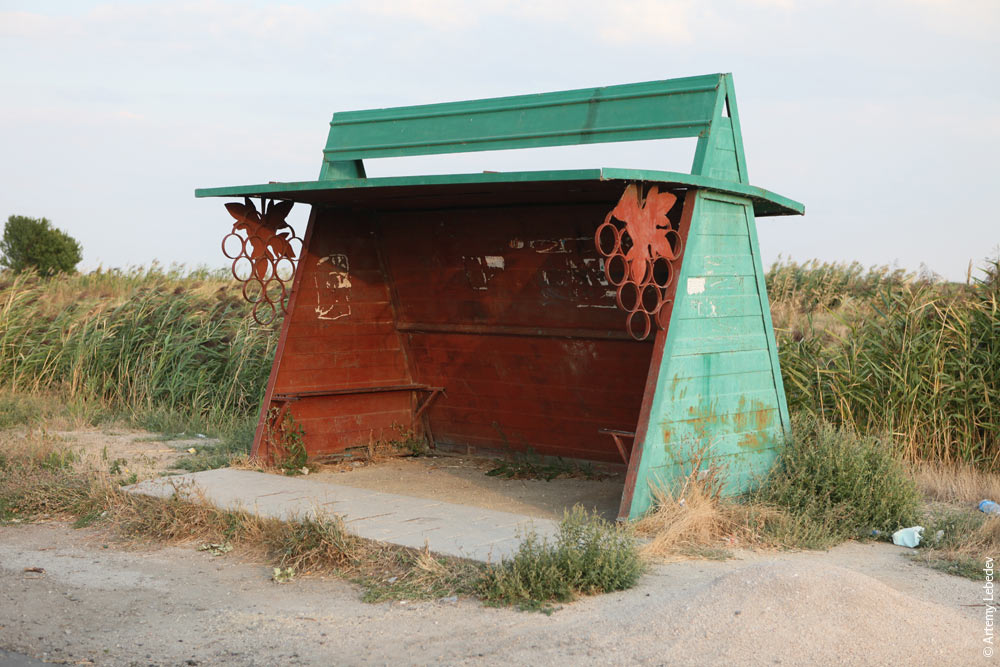 In Crimea, everyone sells honey from custom-fitted trailers. 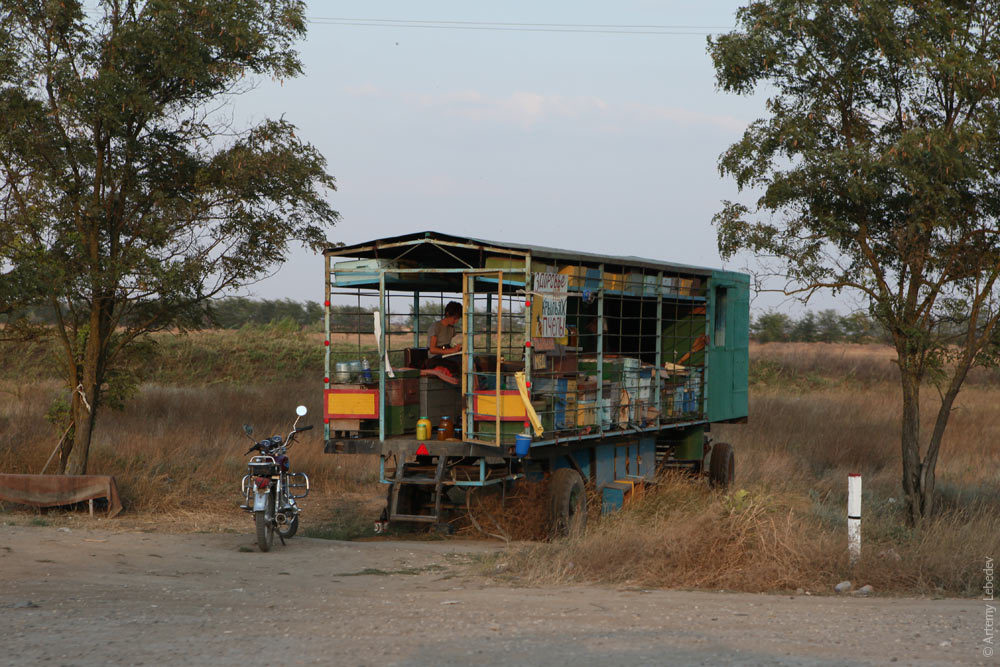 SevastopolMapThe Russian Navy is based here. 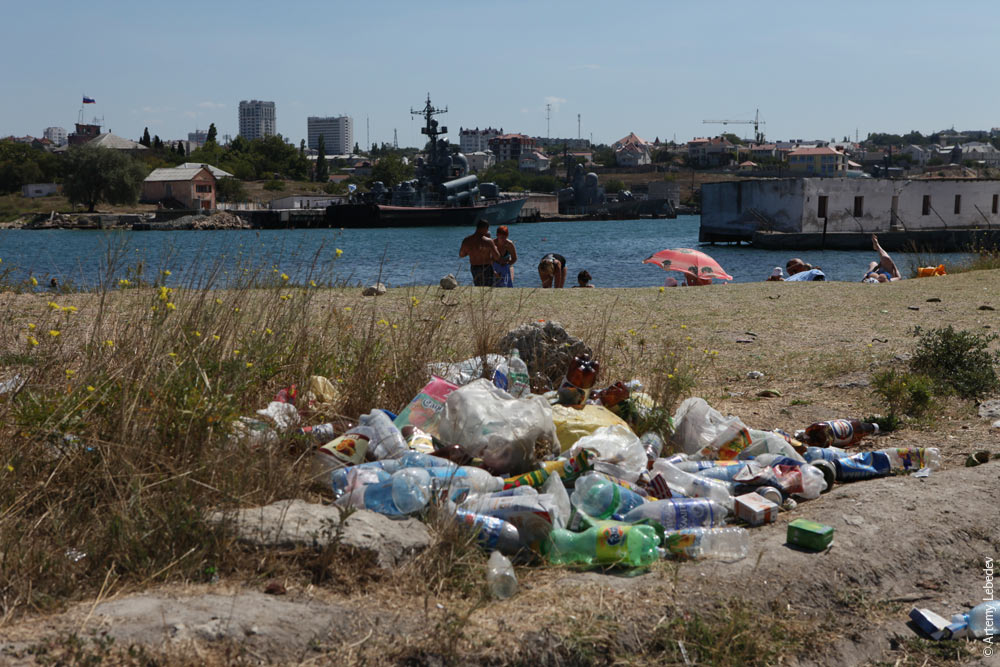 The ruins of Chersonesus are also based here. They’re a pretty sorry sight. It seems antiquity really doesn’t hold up well in our latitutes (simply compare this to the ruins in Algeria and Libya).  Sevastopol is a World War II Hero-City. 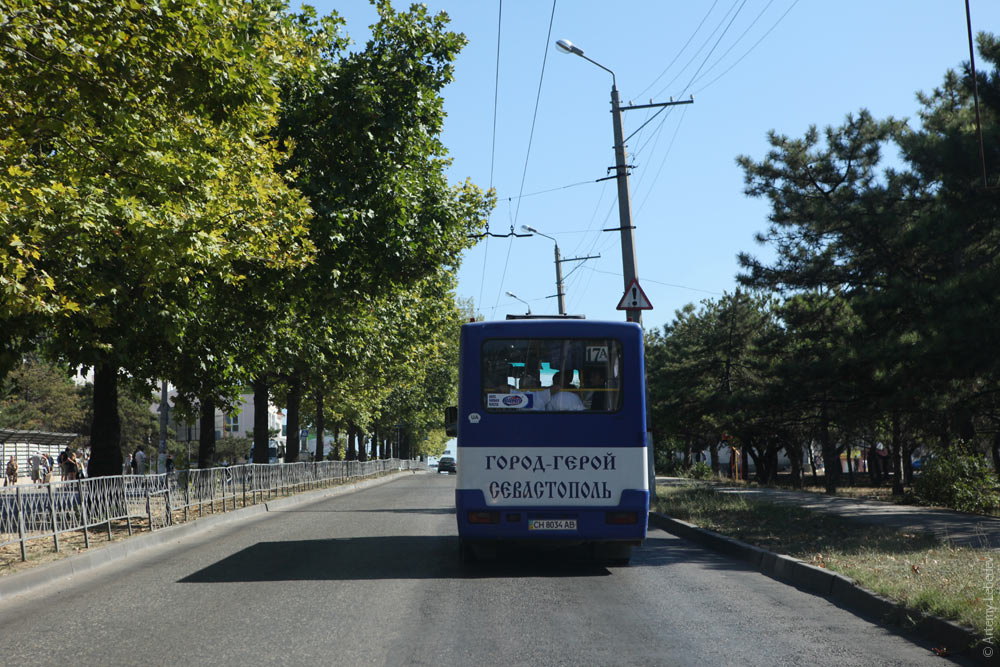 Hero-City Sevastopol Even the lamppost has been decorated with an Order of Heroism. 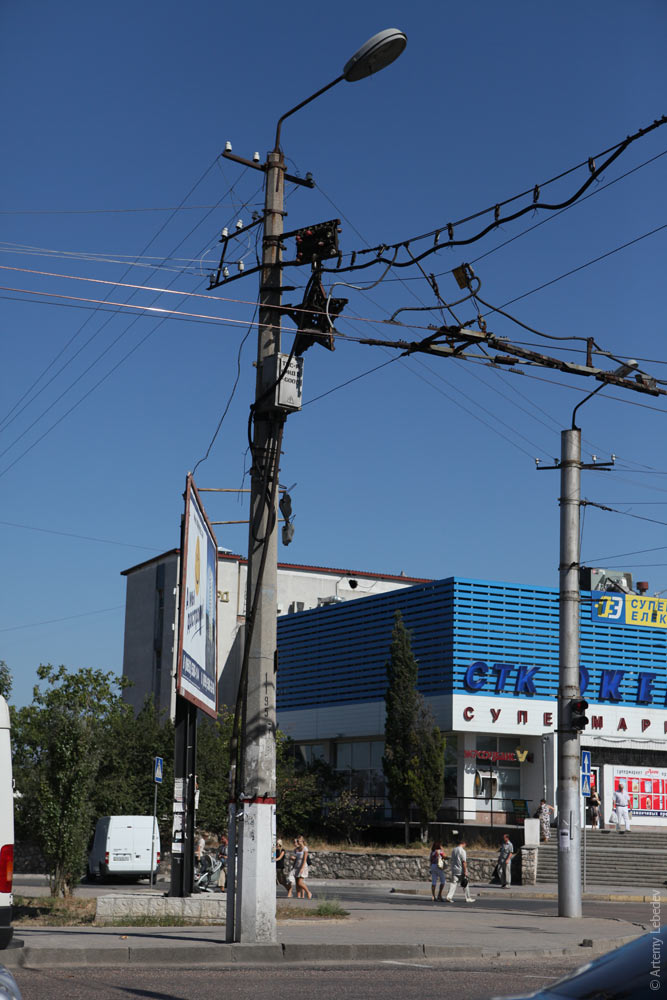 The typical Sevastopol payphone booth is always a double. 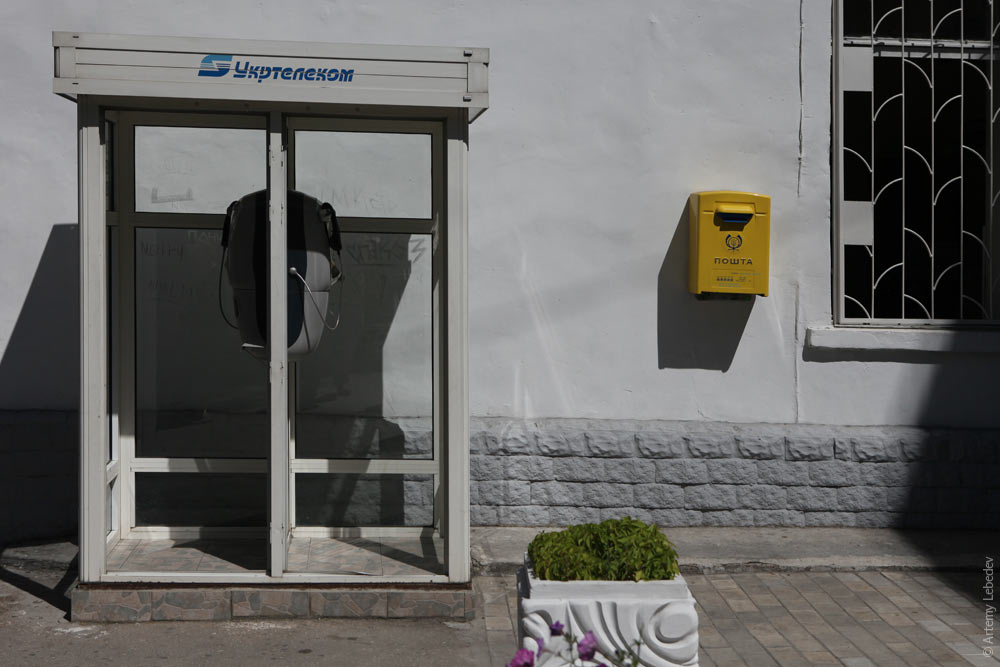 Street signs are manufactured using a technique that makes them resemble license plates. 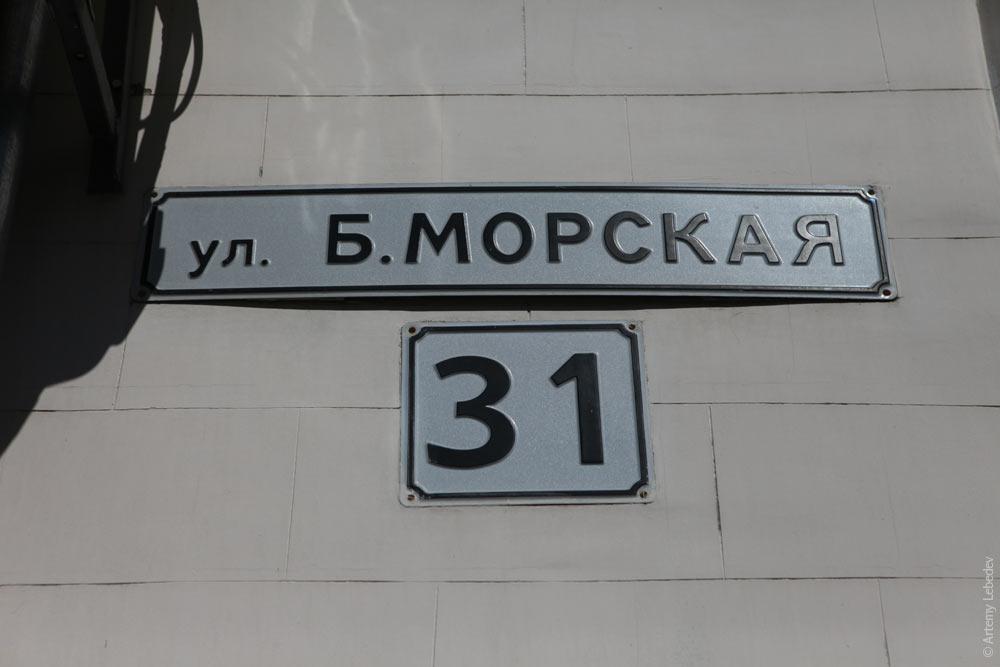 There’s a special mesh container for bottles next to the regular dumpsters. 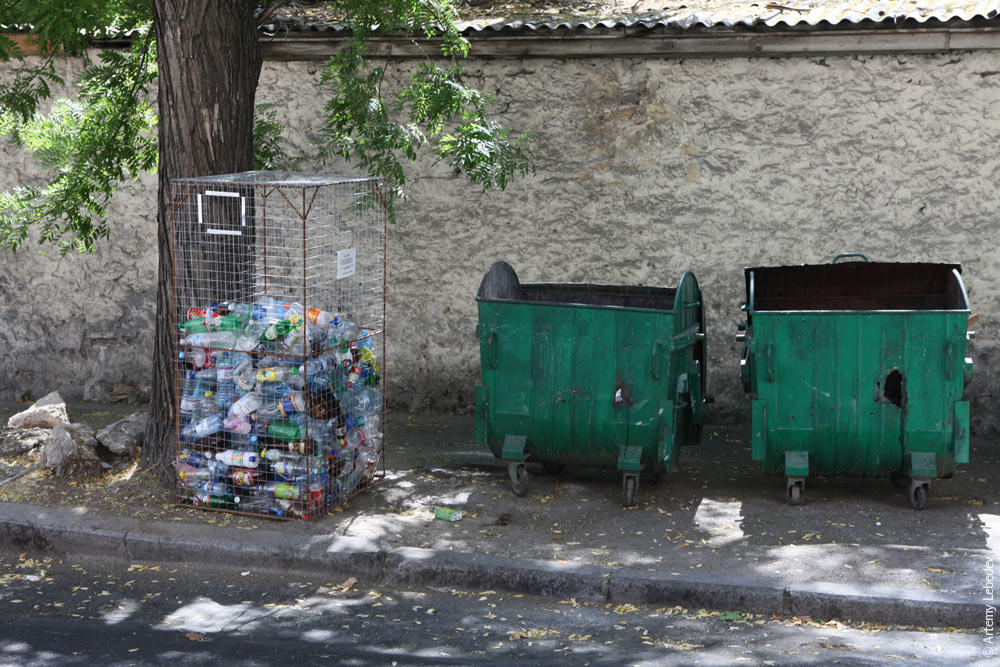 The road fence made me nostalgic: I haven’t seen these ugly little posts with ball joints in a long time. 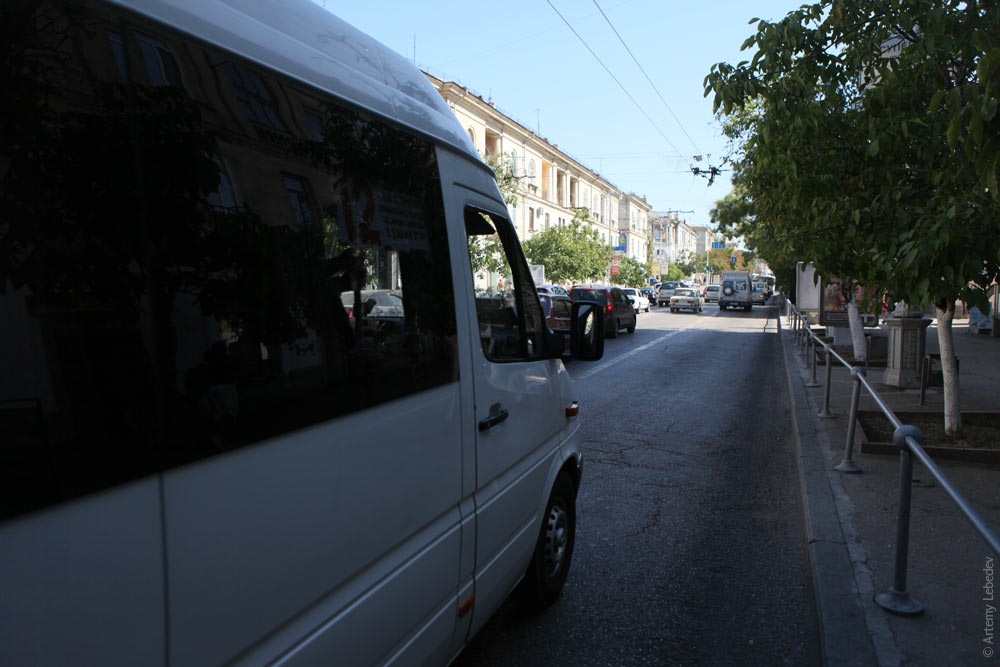 Some views are reminiscent of industrial postcards from the early 1900s. 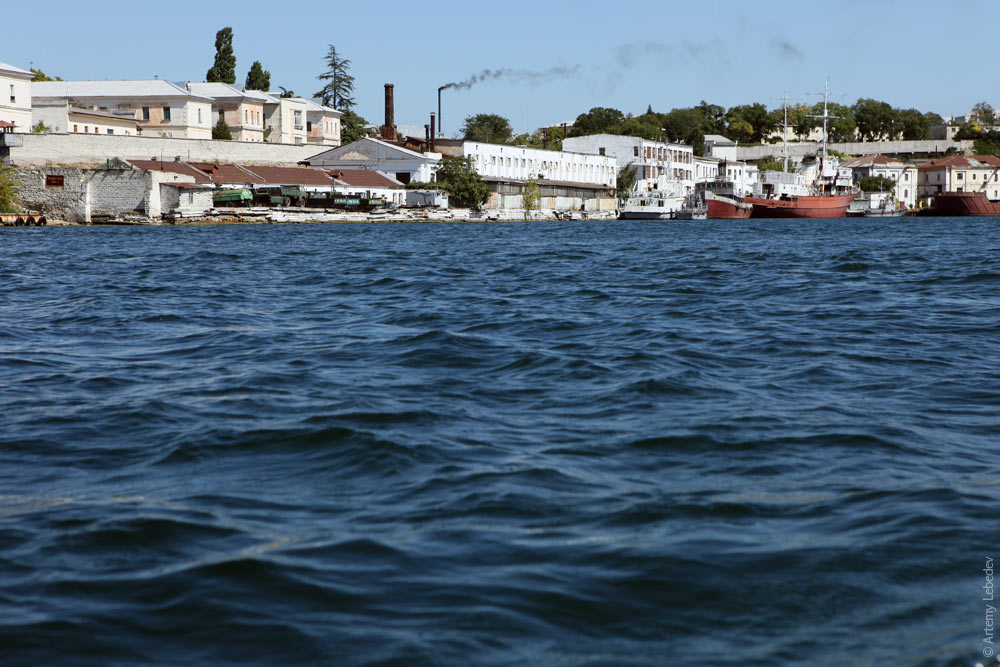 But generally speaking, the city still feels totally Soviet. The municipal honor board is regularly updated. The best district is Leninsky. 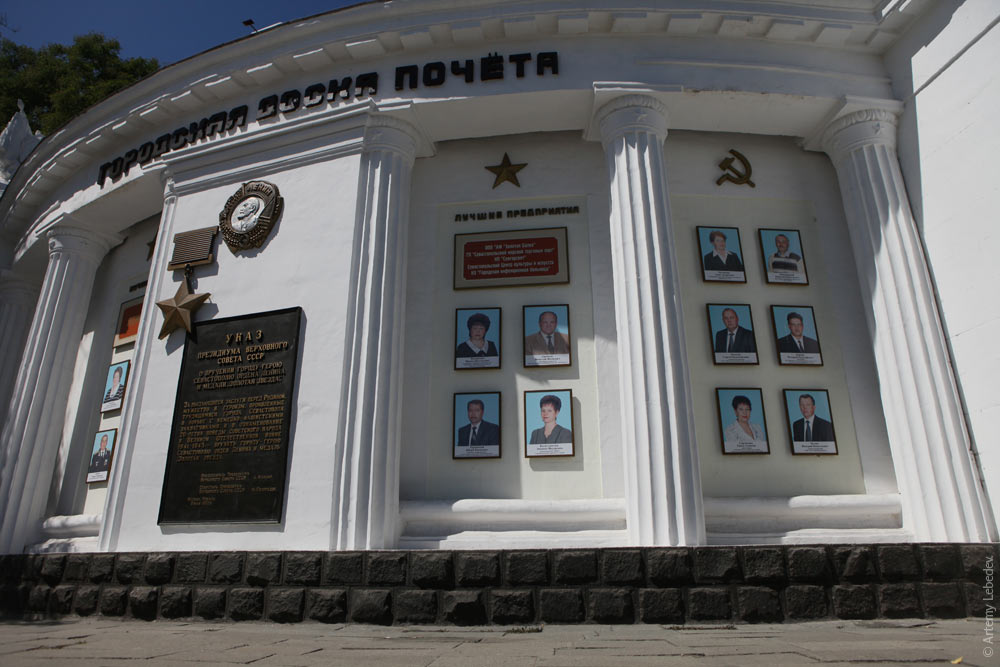 Municipal Honor Board A bus stop. 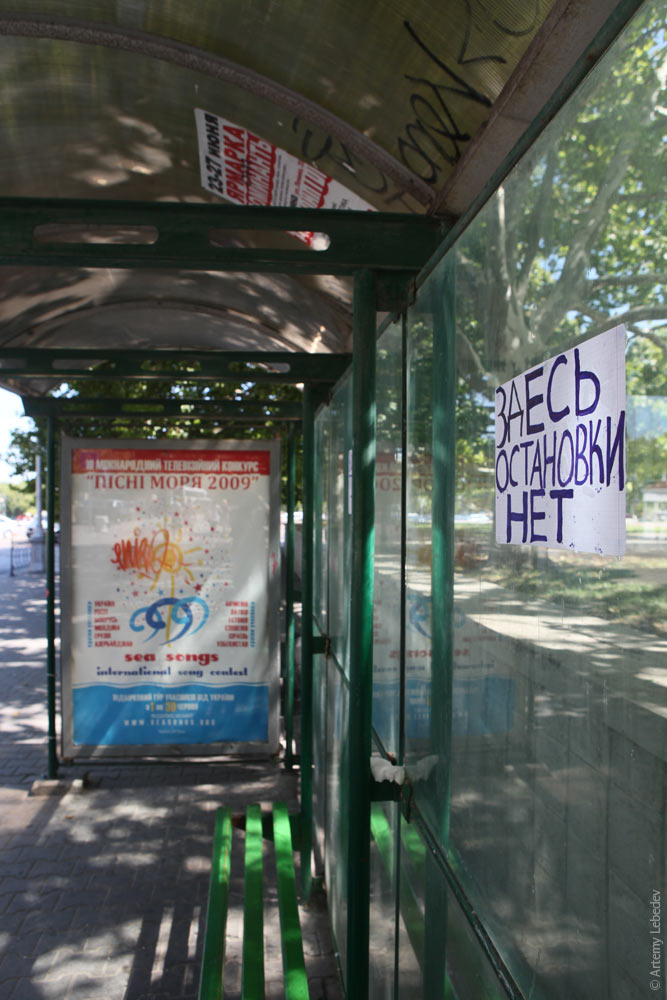 No stop here Sevastopol is the only Ukrainian city where you see Russian flags interspersed with Ukrainian ones in equal measure on the buildings. Or, for instance, here’s a lamppost with a Soviet star and the trident of independent Ukraine. 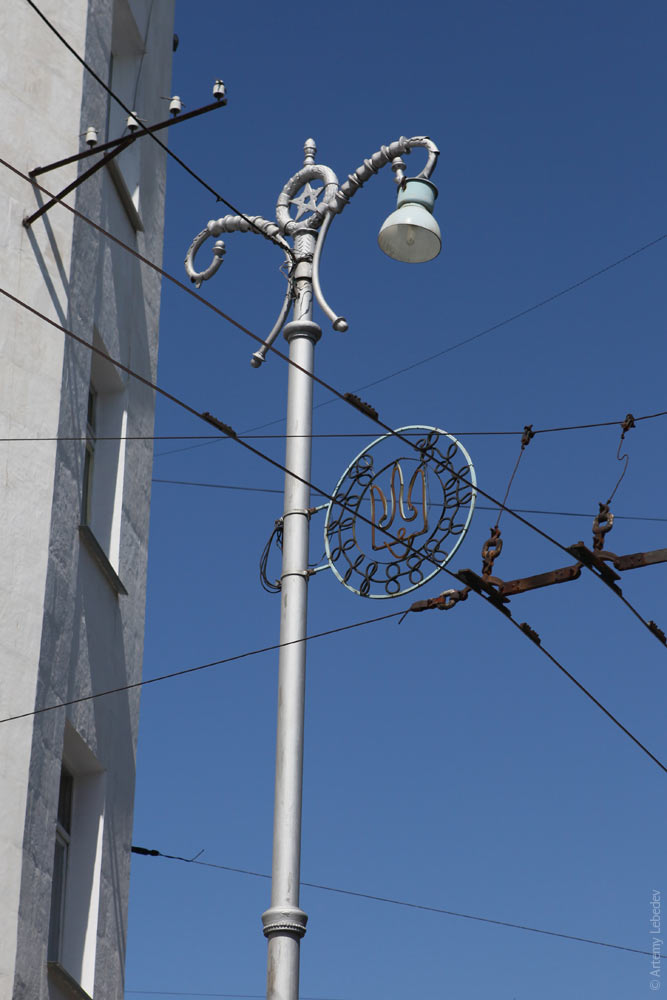 Cars with Russian plates pull into the main square, which is flanked by a building with «Moscow House» written in large letters at the top. A completely wasted teenager greets arriving motorists, describing the enticing features of a boat promenade through the harbor. 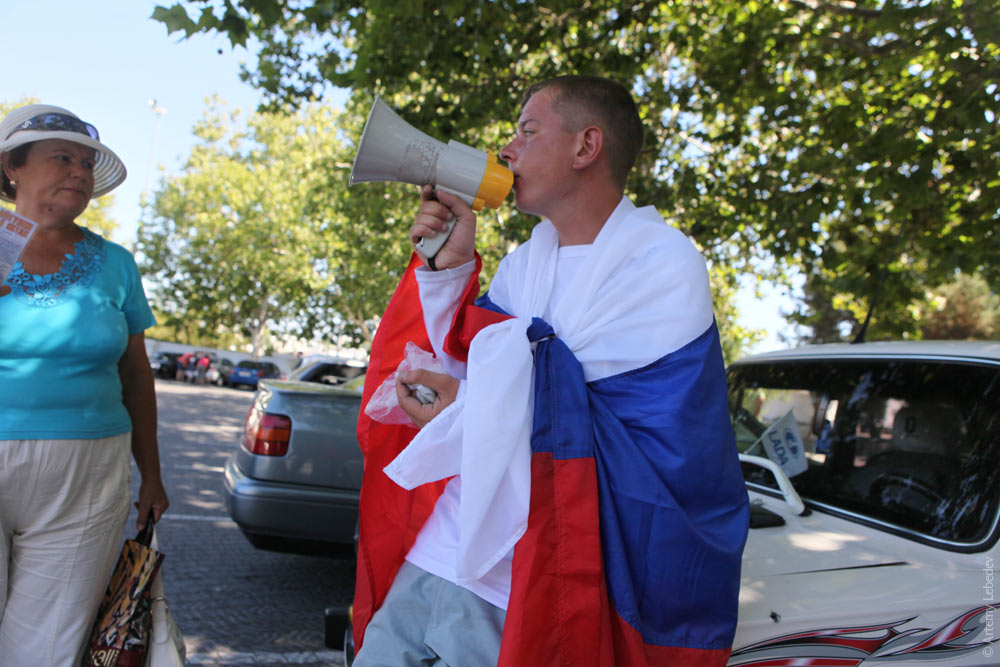 BalaklavaMapThere’s a submarine repair base, which used to be a top-secret military facility until very recently, right next to Sevastopol. Ukraine doesn’t have the money to keep using it for its intended purpose, so it’s been turned into a museum.  Remember the War! 1941–1945 The entire facility is situated inside a cliff. This is where the submarines would come in. 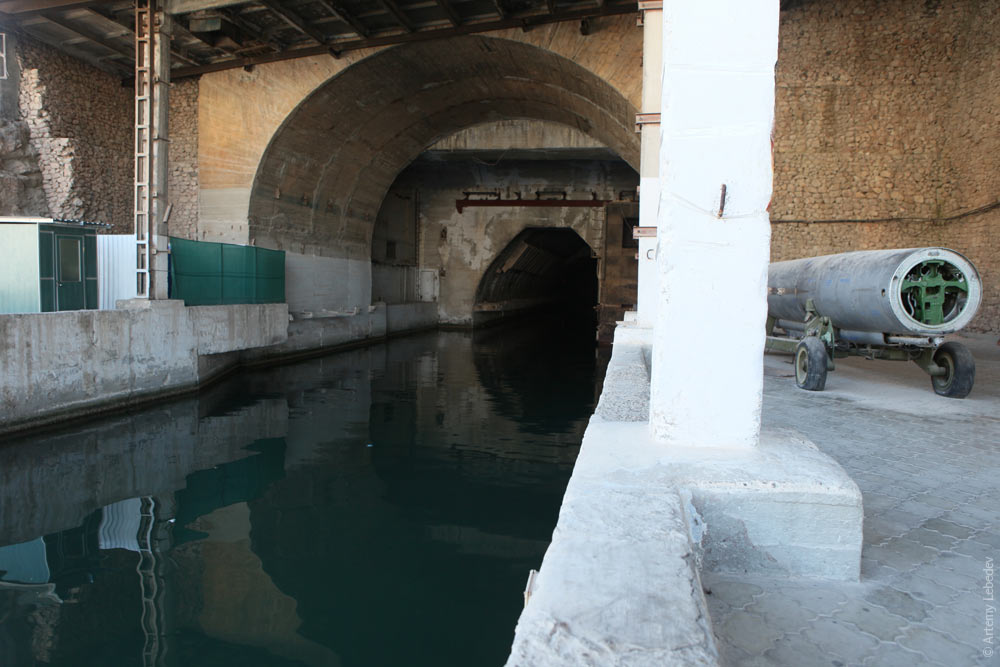 This is where they’d get repaired, and they’d come out at the end of the semicircle all ready to go. 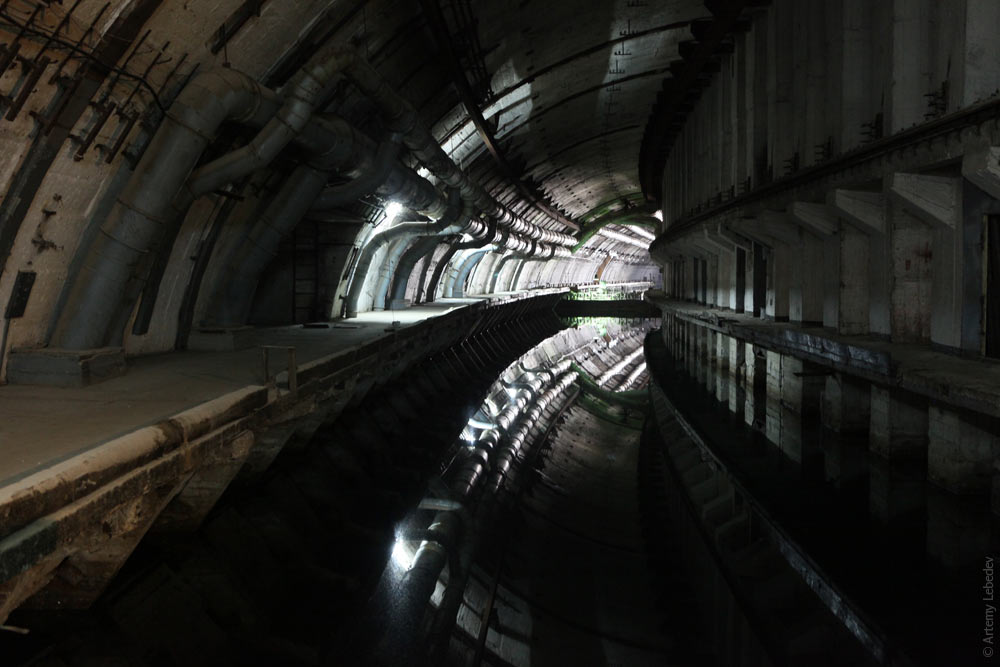 One of the most captivating military museums in the world. SimferopolMapA completely uninteresting city. Except perhaps for the flowerpot holders on the utility poles. 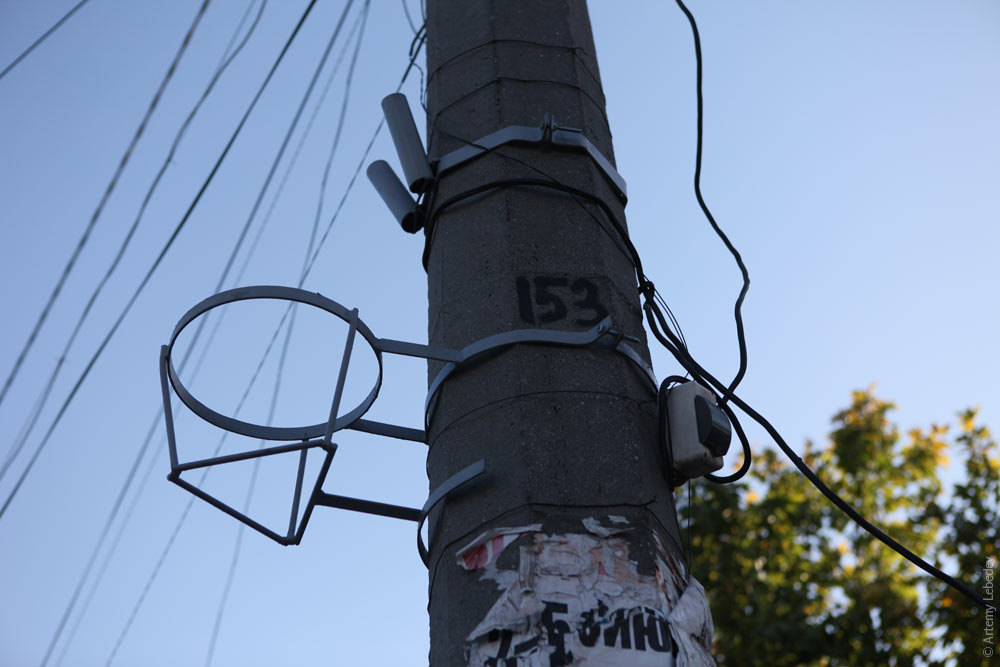 The winding road sign (in this case a sharp left followed by a right) has another sign underneath specifying that there are four zigzags ahead. An excellent idea.  FeodosiaMap
I expected this place to be romantic. 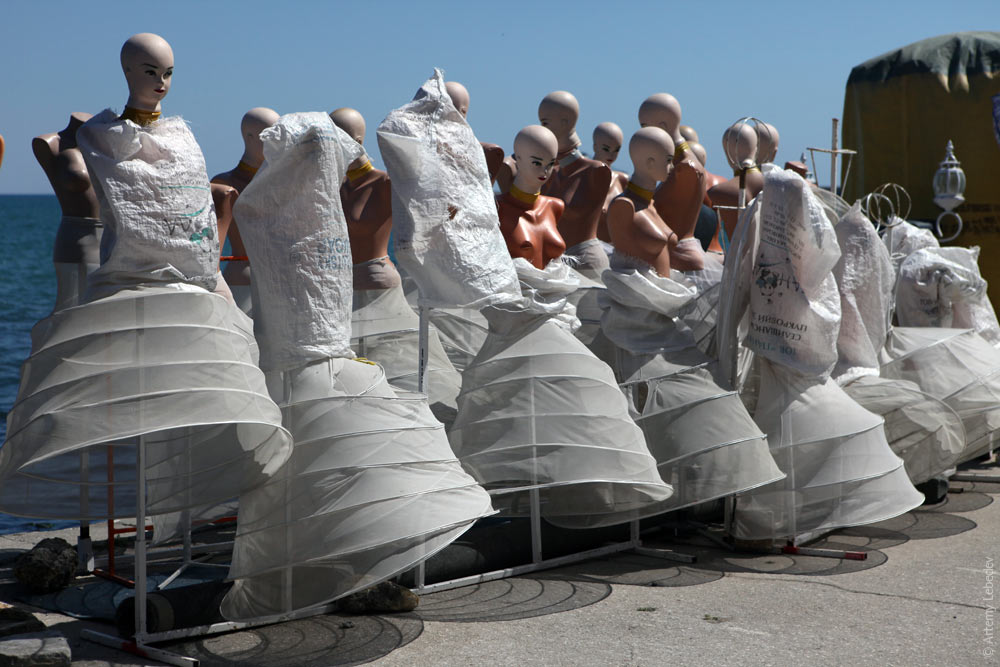 But it turned out to be typical Crimea. 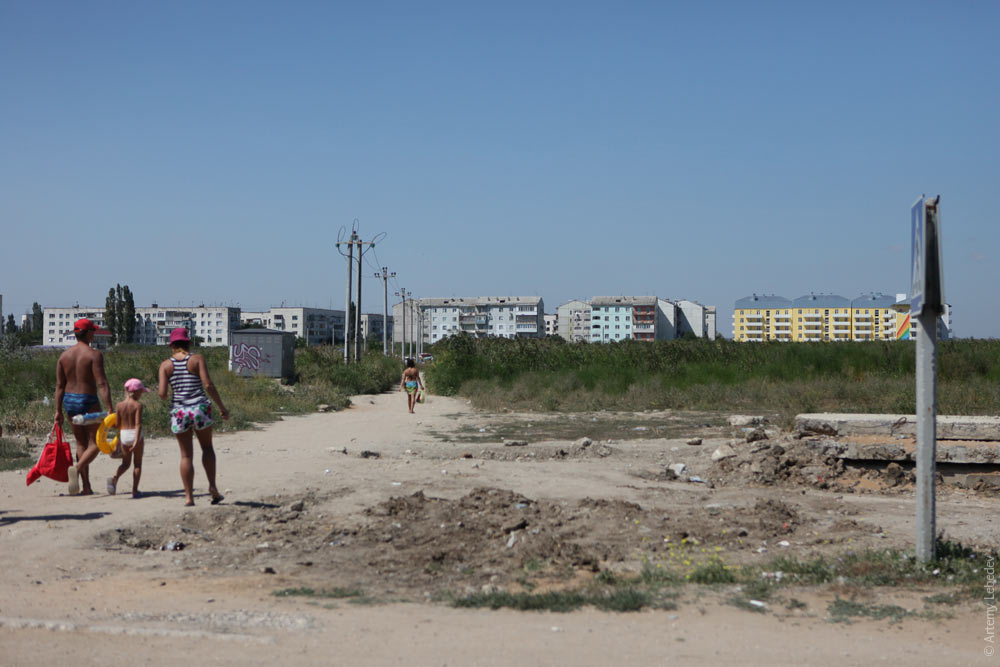 A pre-revolutionary manhole cover. 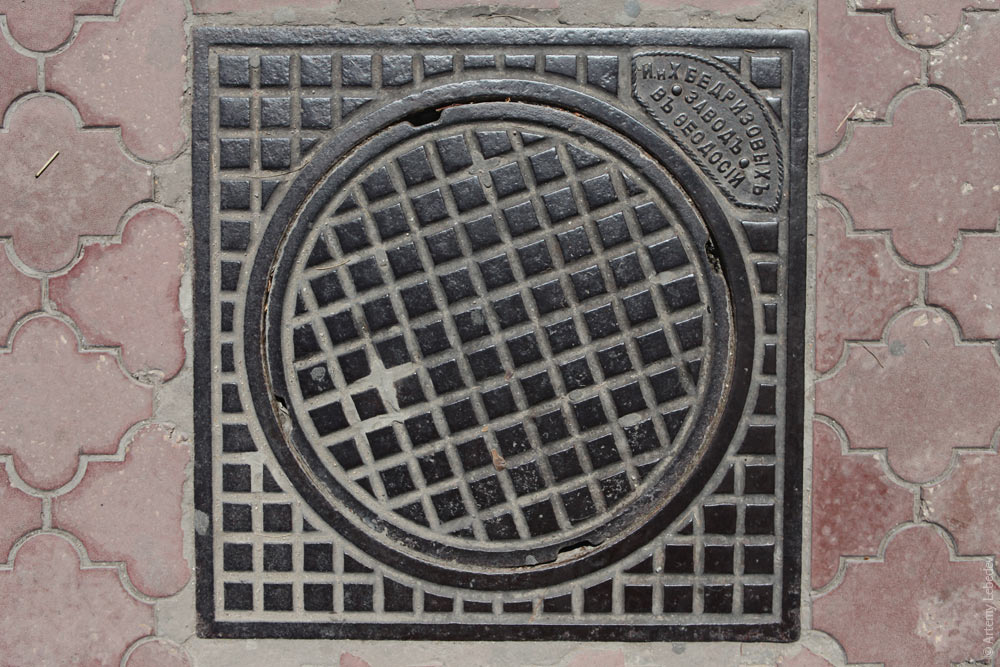 Bedrizov Factory Feodosia A revolutionary manhole cover. 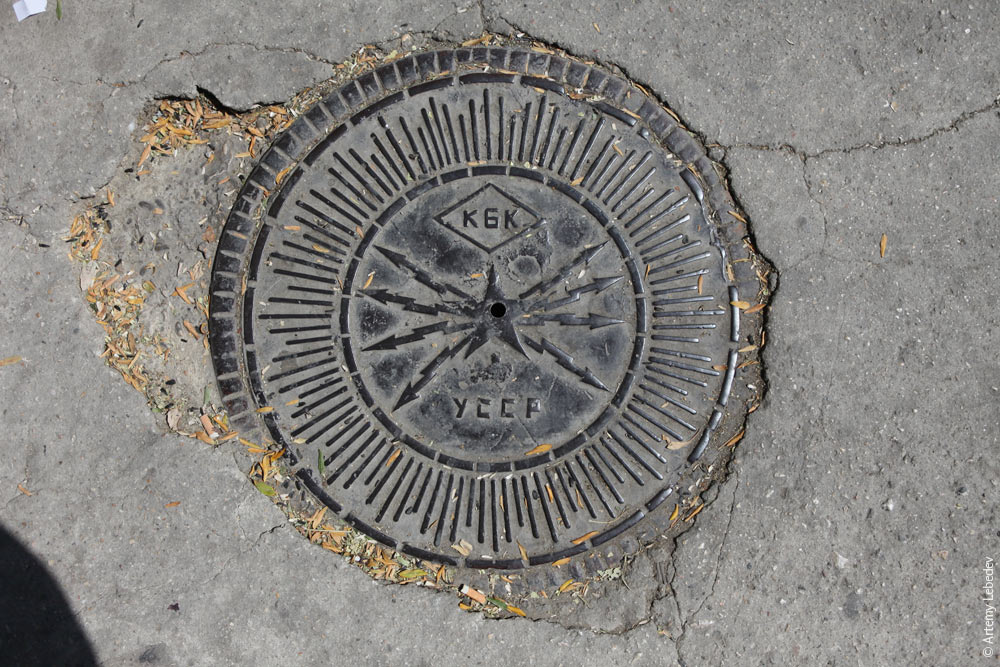 Ukrainian SSR The sign pole resembles a cactus. 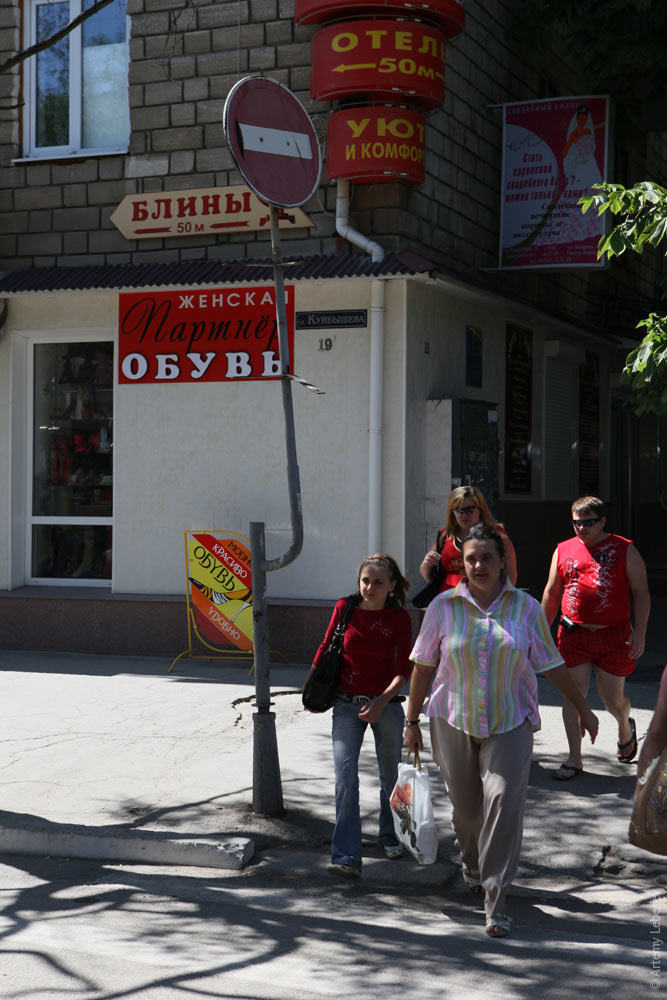 The trademark Feodosia bus stop. Nostalgia for Art Nouveau and kiosk realism. 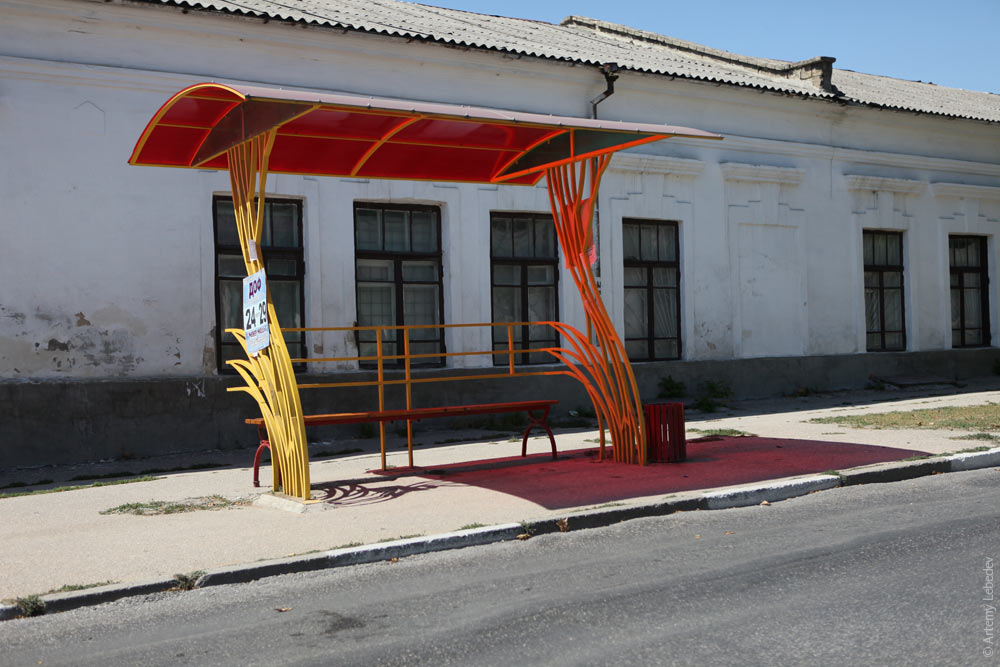 In addition to «bumpy road» and «speed bump» signs (which look like little hills), Ukraine also has a «concave unevenness» sign. 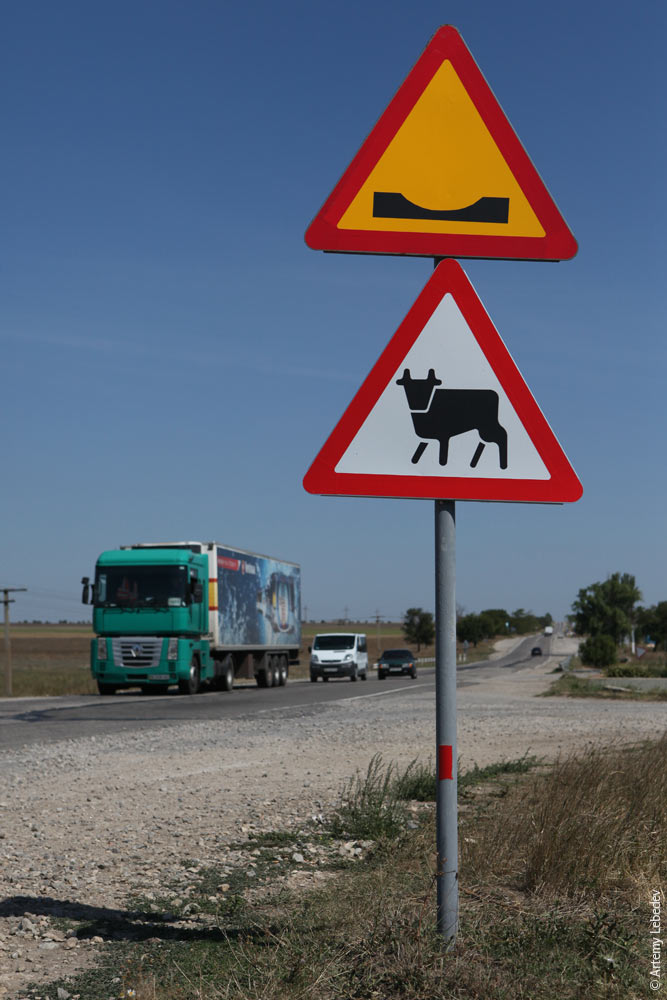 KerchMapKerch has its own flag, which is easy to mistake for the American flag at first. 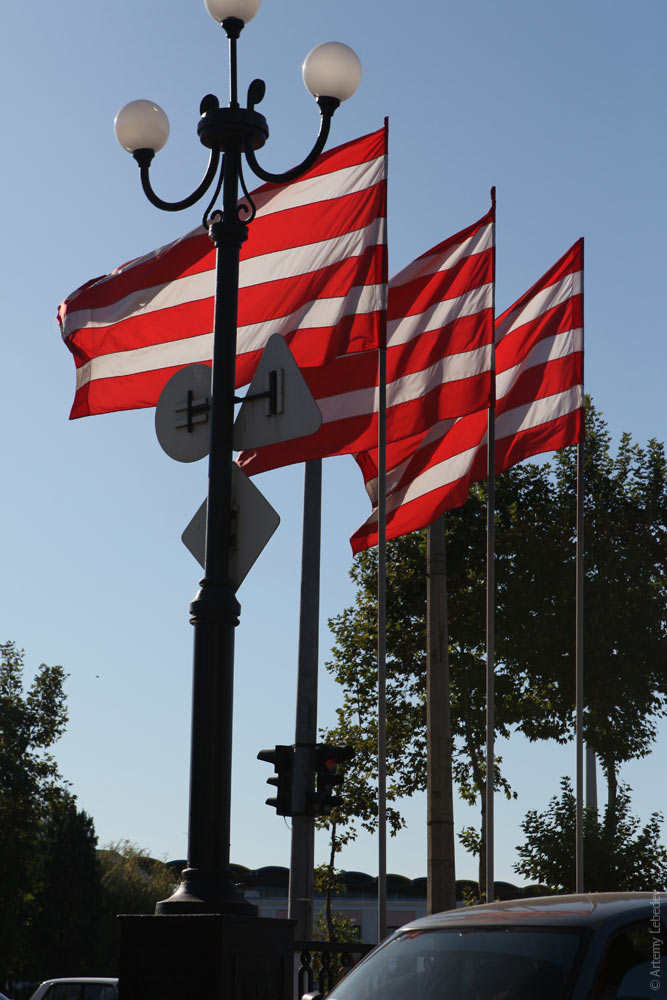 The curbstones continue the red stripe theme: they’ve been painted red across the entire city. People say it’s easy to recognize cars from Kerch by the red marks on their tires. 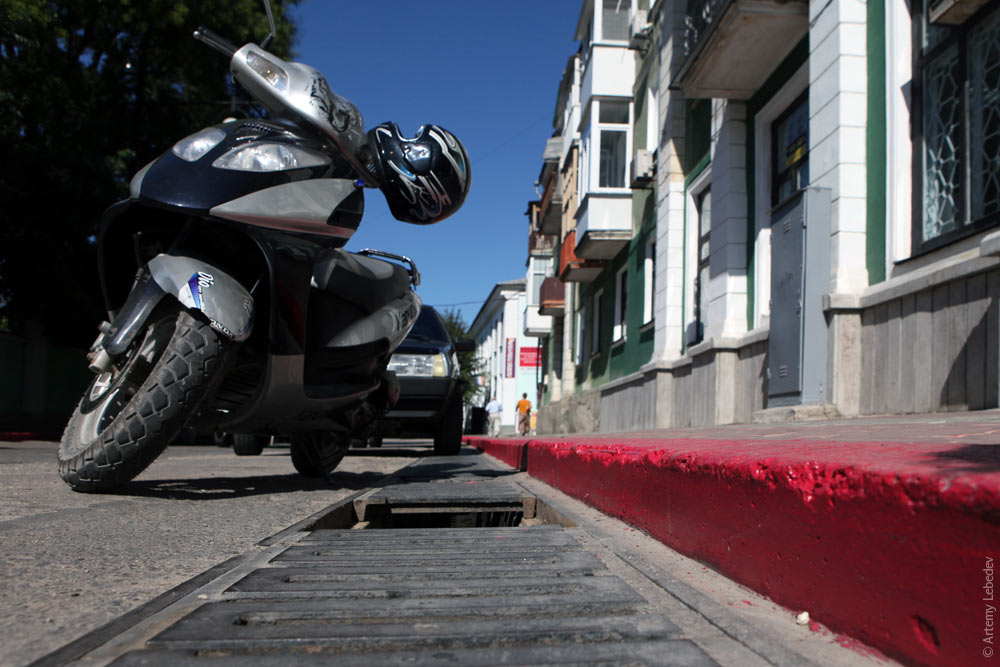 There are surprises in the form of vintage signs in some of the courtyards. 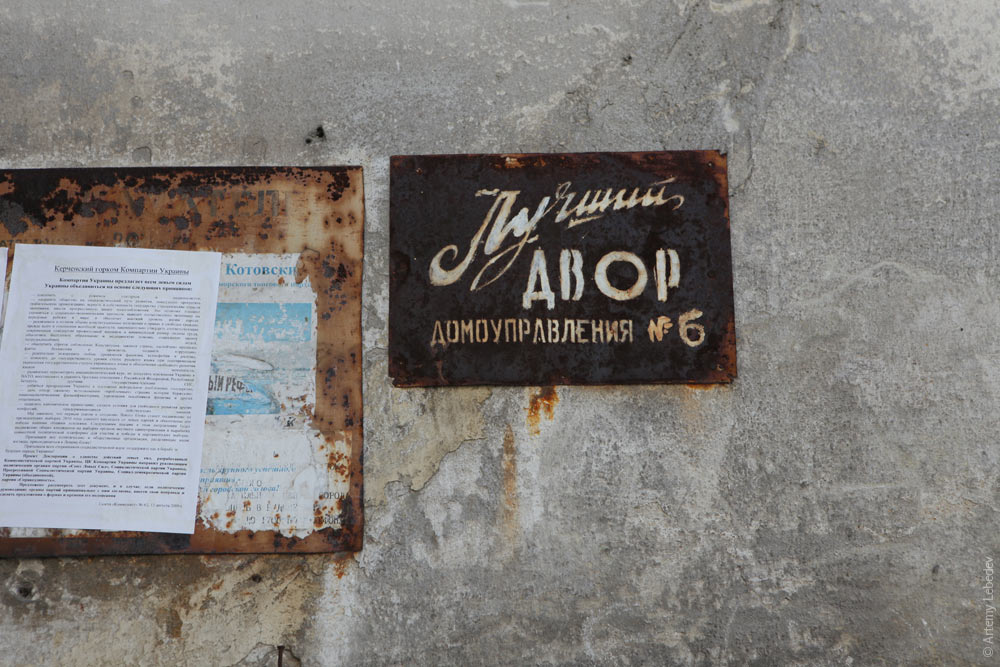 Best Courtyard of Housing Department #6 One courtyard even has an intact pole belonging to the Indo-European Telegraph Company (London—Calcutta). This is how Siemens started its business. 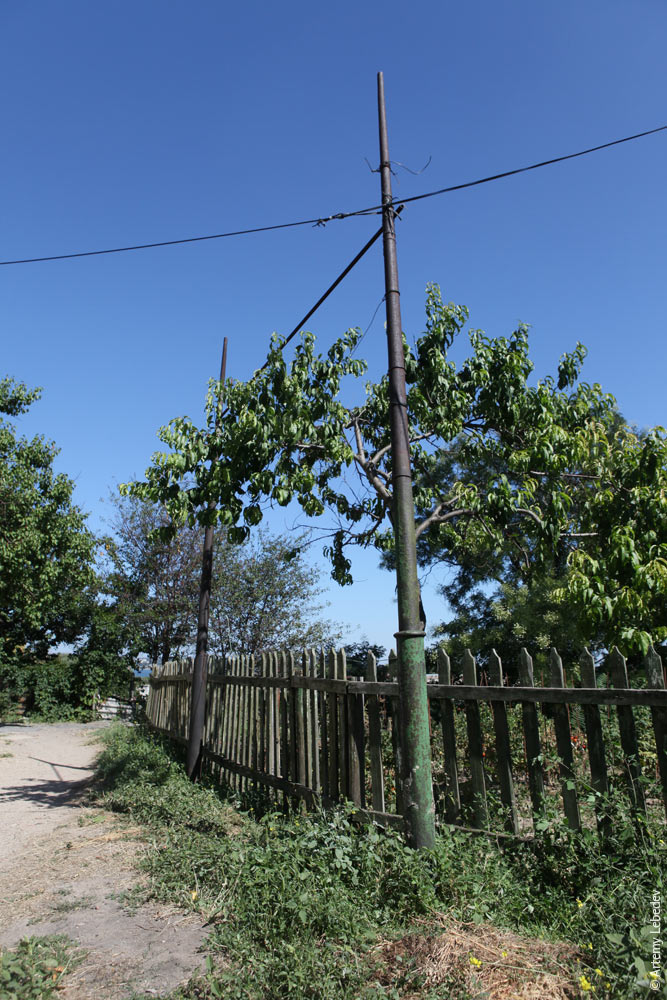 ZaporizhiaMapA sort of Ukrainian Chelyabinsk. 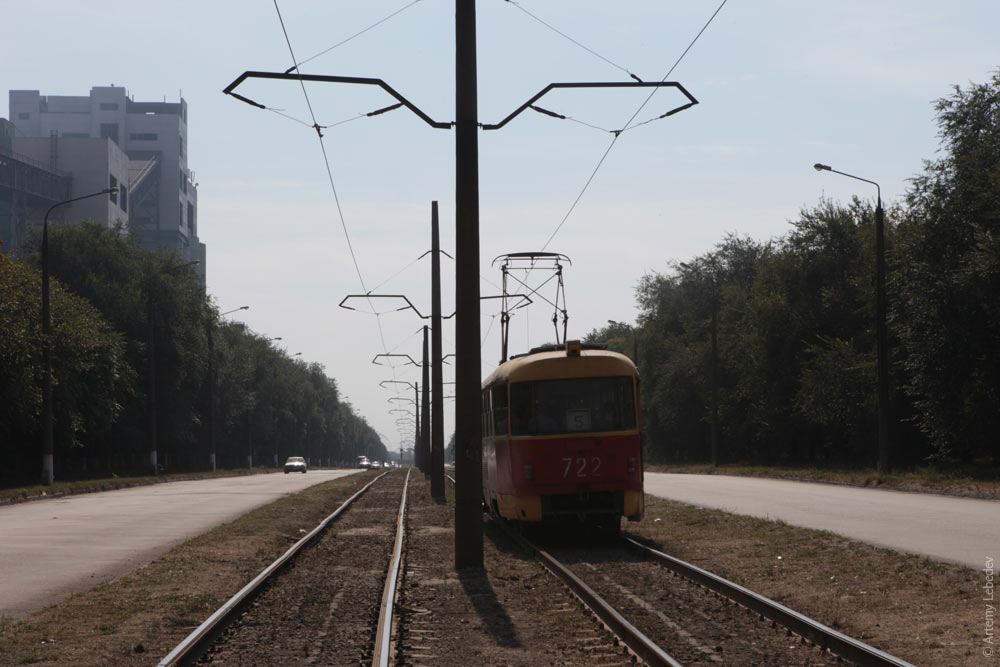 There’s absolutely nothing to see in the city. 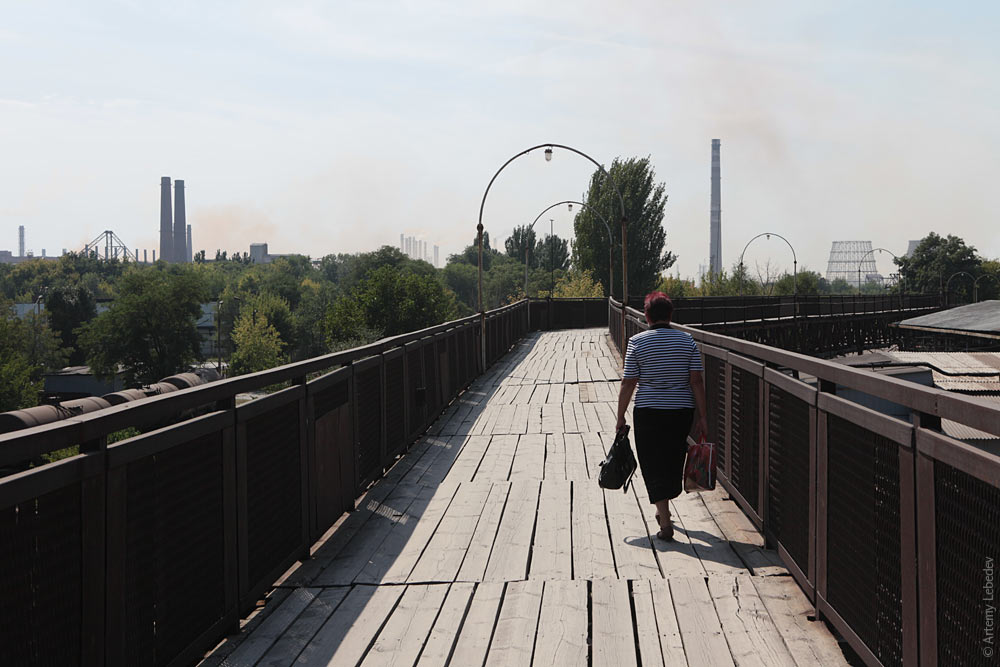 Much less listen to. 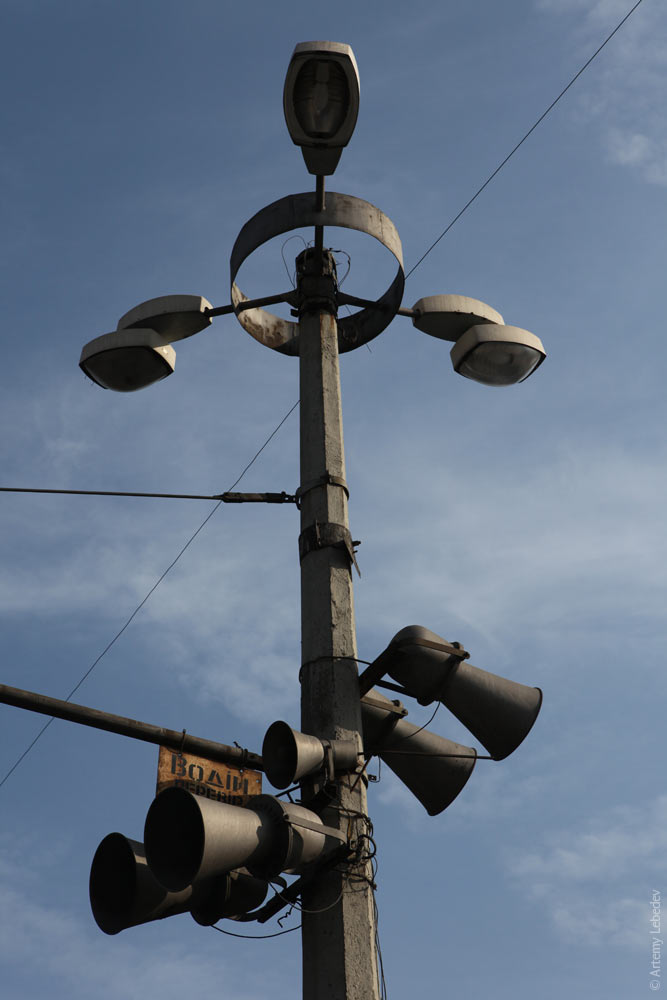 The more common type of payphone half-booth. 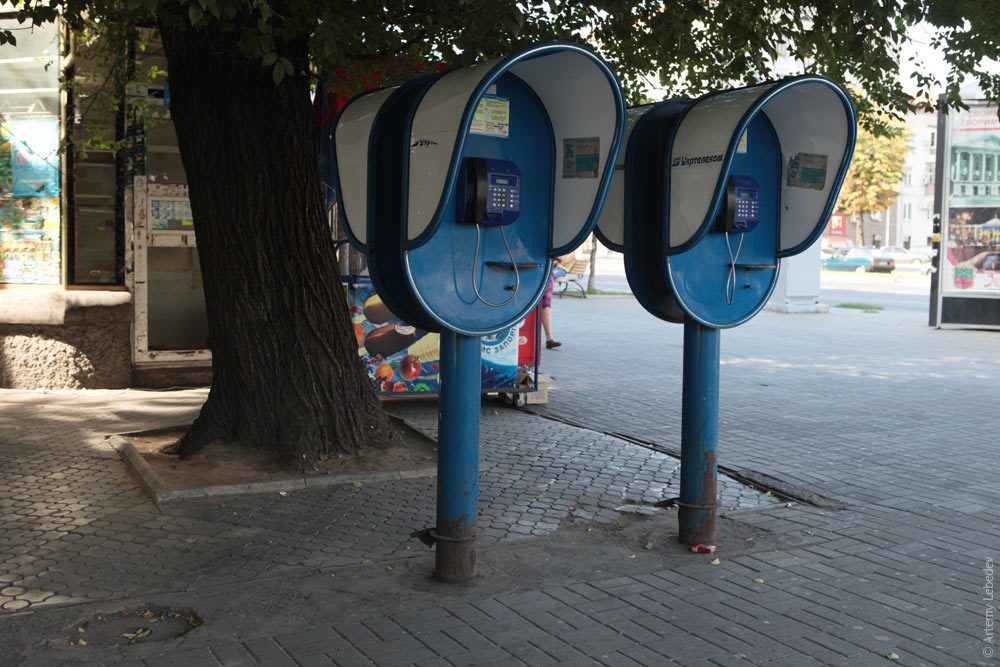 The less common type of payphone half-booth. 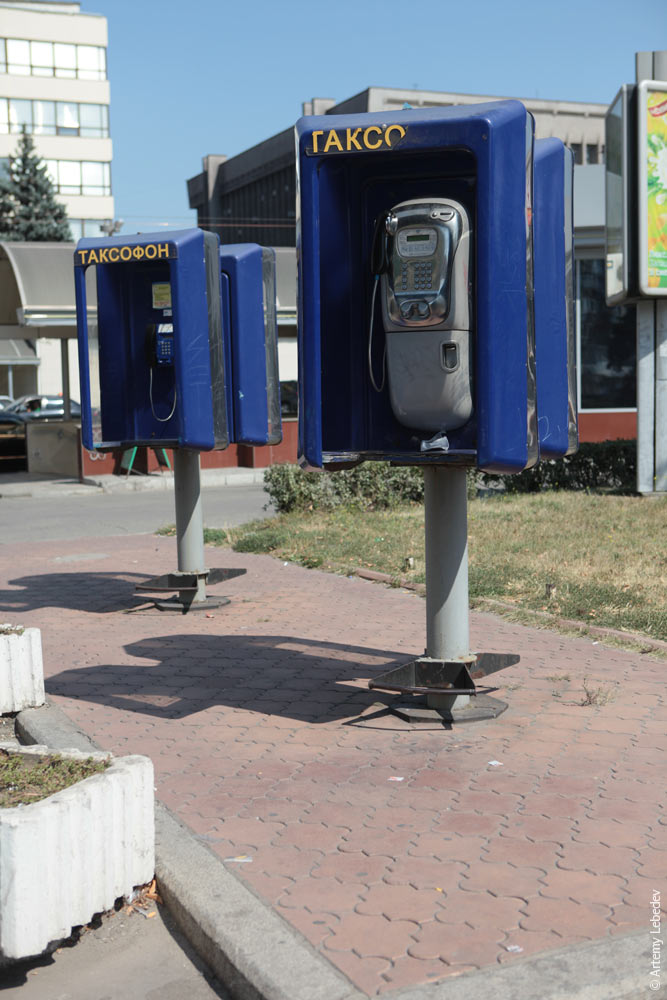 A timid attempt at trash sorting. 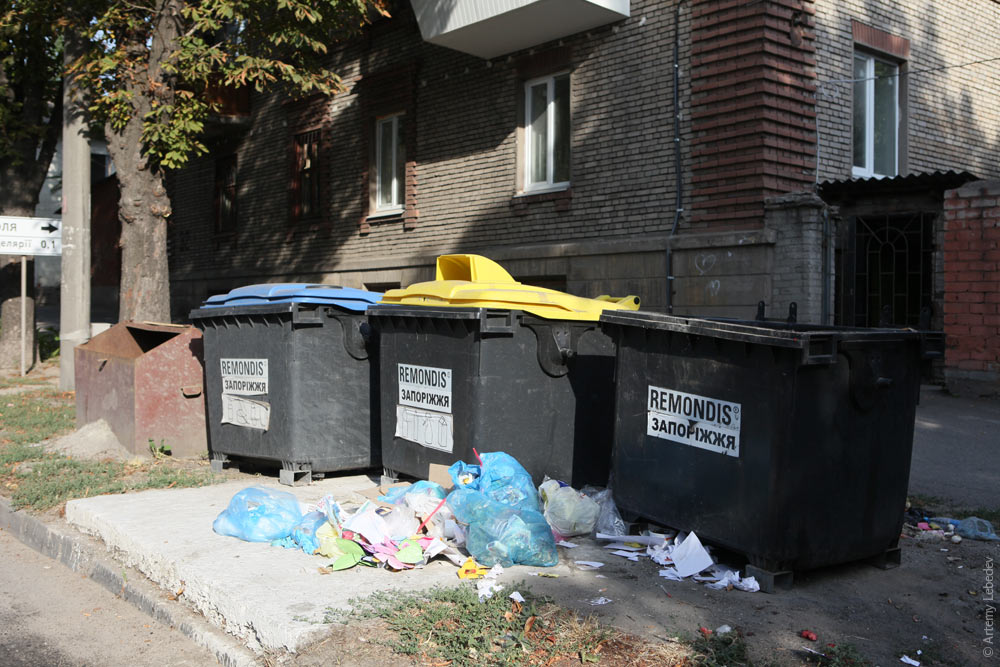 Hospitals are marked in green rather than red on Ukrainian road signs. This is absolutely correct in terms of color coding, because red on traffic signage always has just one meaning: danger. 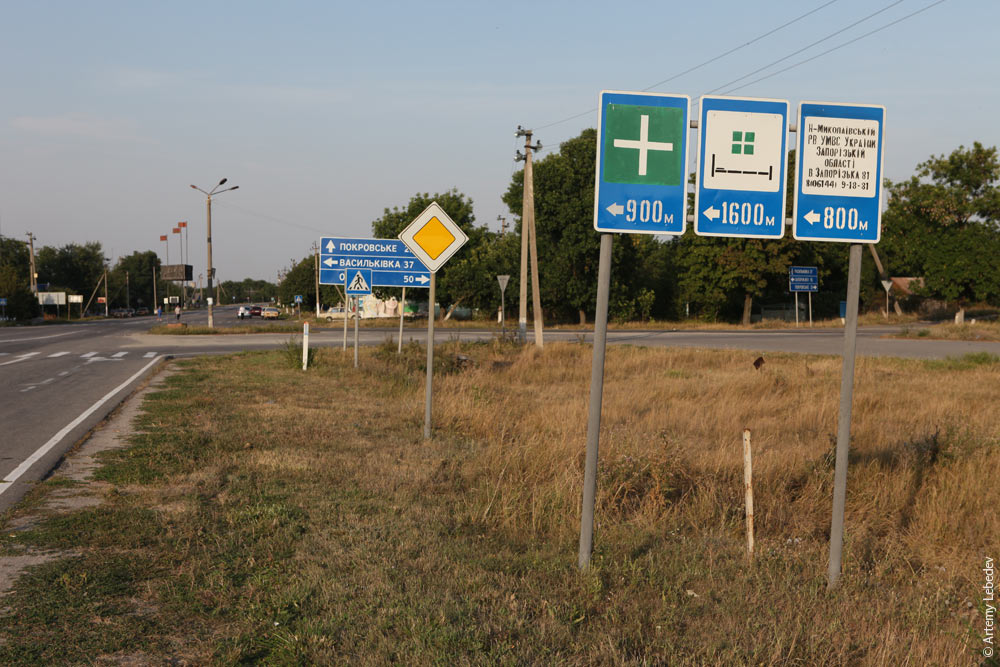 DonetskMapI forgot to mention an important Donetsk species last time: a kiosk shaped like a cell phone where you can top up your balance and buy various kinds of phone and internet cards. 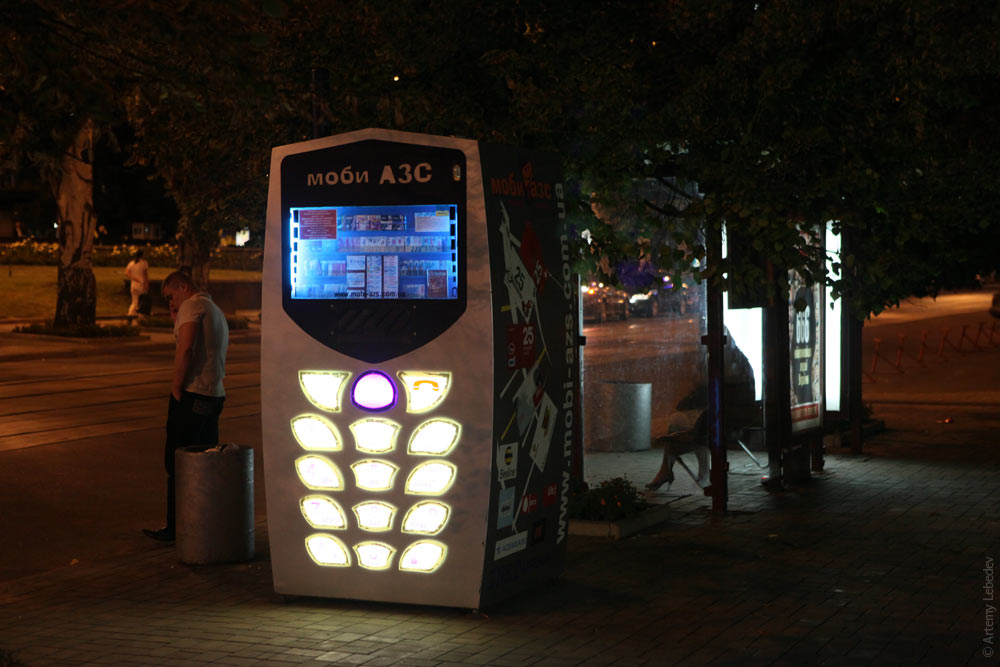 The city hasn’t changed much over the past two years. There are still advertisements for diamonds, gold and Bentleys on every corner. 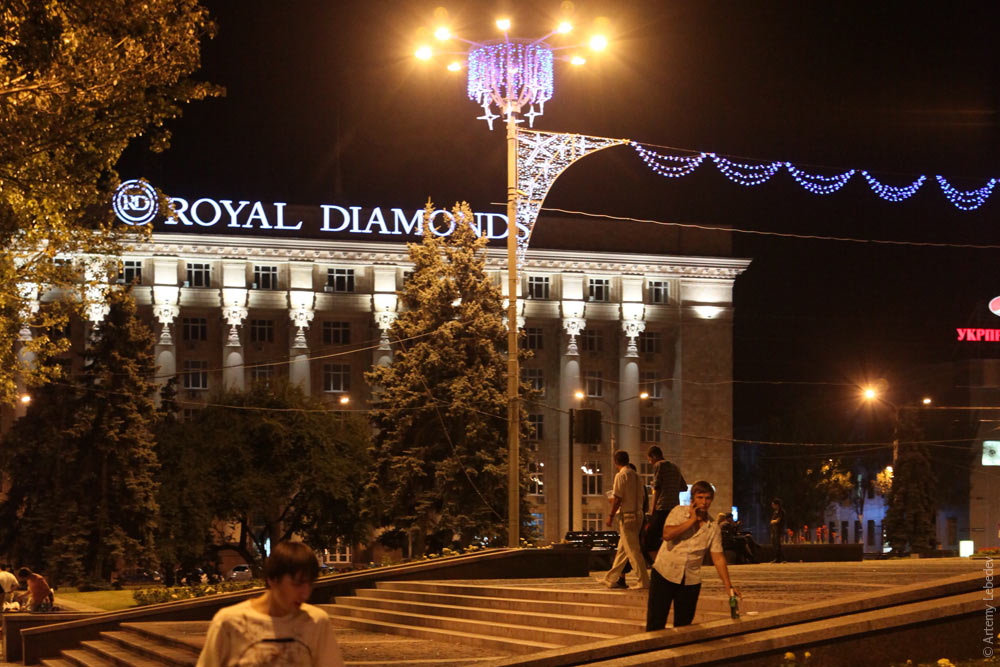 The wall painting reminded me a bit of Slovenia, but more of Bhutan. 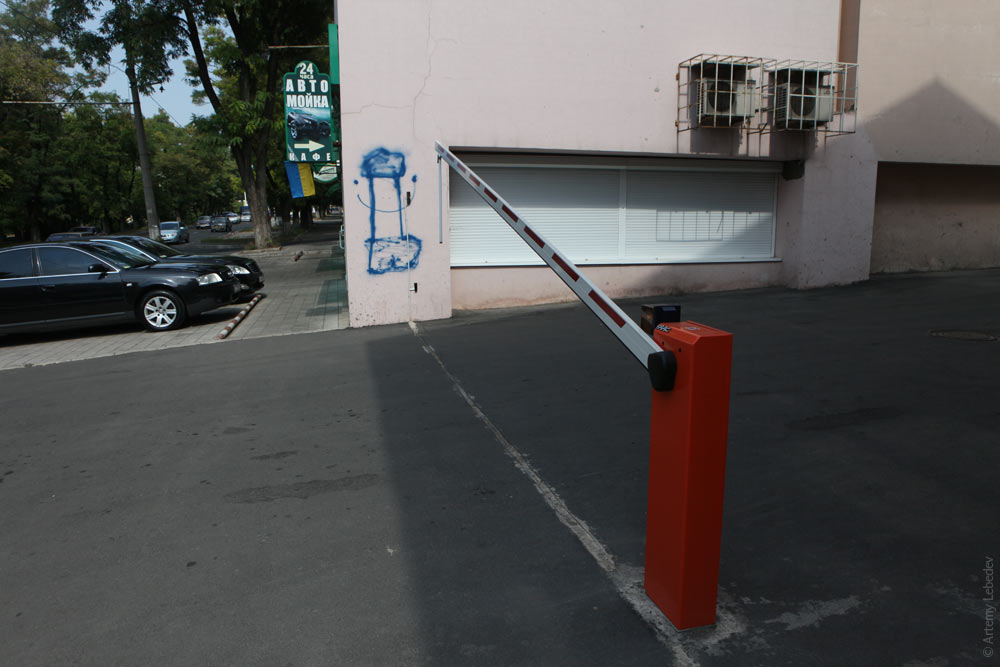 The bottle-recycling container has a unique pyramid shape. 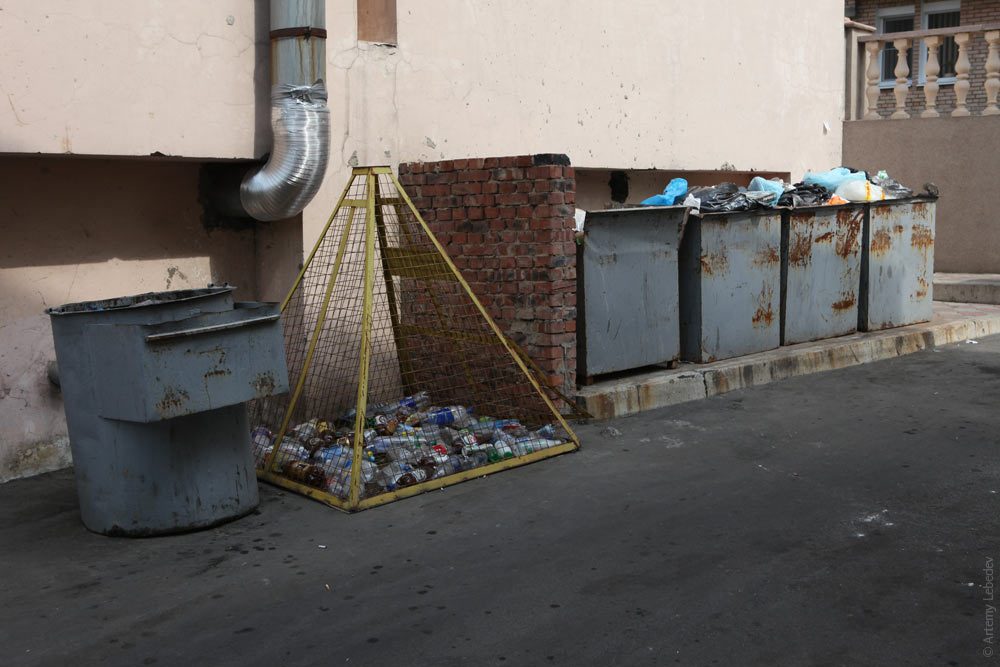 A payphone booth. 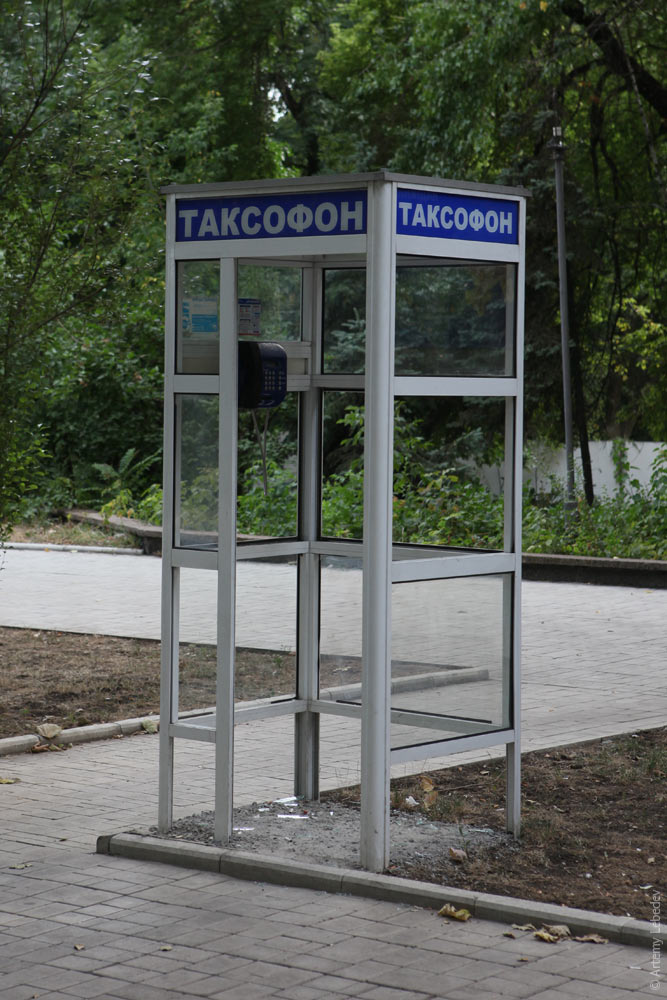 The impossibly beautiful stadium of the Shakhtar Donetsk football club was due to open the day after the ethnographic expedition arrived. People had come in from all over Ukraine for the opening, and all the hotels within a 50-kilometer radius had been booked a year ahead. A grandiose opening ceremony and beautiful concert were scheduled, and I had an invitation. 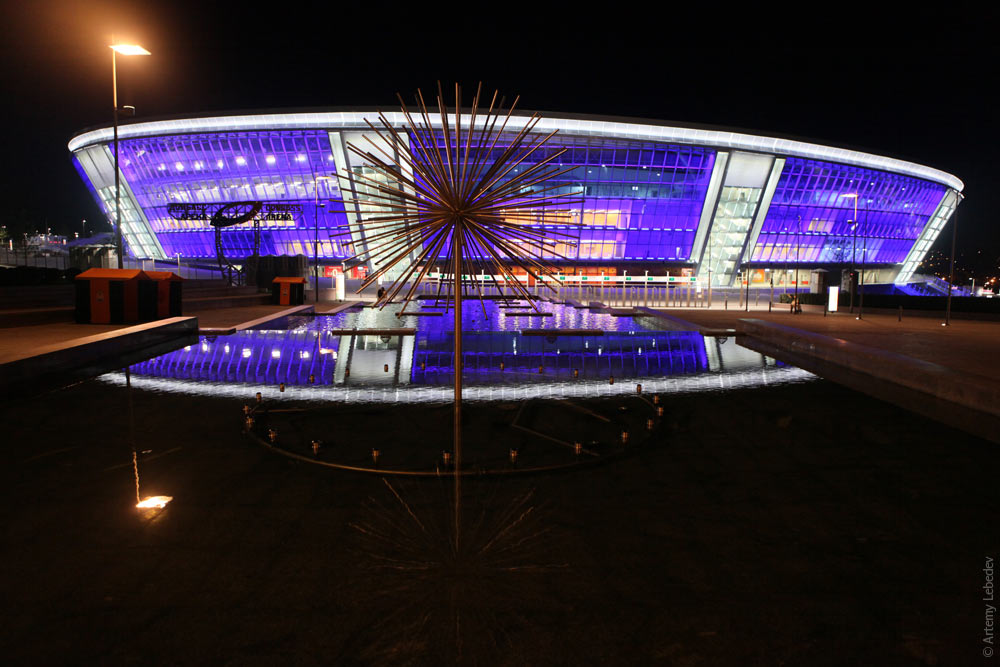 But instead, I chose to go on a tour of an illegal mine in the Luhansk region. |